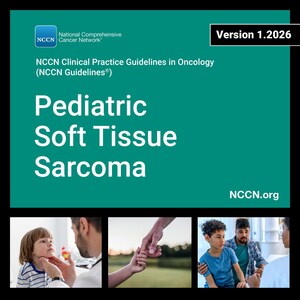
The Days of Biosimilars and Molecular Testing Are Here; Are We Ready?
Registration is open for the NCCN policy summit on September 16 in Washington, DC, which will bring together national health care experts for deliberation on the regulation and application of biosimilars and molecular testing in cancer care.
FORT WASHINGTON, Pa., Aug. 23, 2016 /PRNewswire/ -- As the use of biosimilars in cancer care rapidly expands, the National Comprehensive Cancer Network® (NCCN®) will convene oncology stakeholders to deliberate the benefits and challenges of using biosimilars—drugs that are chemically similar, but not identical, to the reference product, and which offer the same therapeutic benefit and safety. Panelists will also discuss the growing role of molecular testing in the care of patients with cancer.
Last year, the U.S. Food and Drug Administration approved the first biosimilar product—filgrastim-sndz—a growth factor used to maintain blood counts and prevent infection in patients receiving chemotherapy for cancer. This approval came five years after Affordable Care Act allowance for development of biosimilar agents that provide similar efficacy and safety to already approved agents. Multiple other biosimilar compounds have been approved or are in development.
Moreover, the use of molecular testing in decision-making to provide personalized medicine for patients with cancer continues to develop as the number of molecular tests that predict risk of disease or benefit of treatment rapidly expands. With both biosimilars and molecular testing come challenges in assuring patient access to innovation in cancer care while maintaining safe, effective, ethical, and affordable treatment options.
On Friday, September 16, 2016, providers, policy makers, patient advocates, insurance representatives, and pharmaceutical representatives will weigh in on these issues at NCCN's Oncology Policy Summit: Developments in Biosimilars and Molecular Testing at the National Press Club in Washington, DC.
Clifford Goodman, PhD, will moderate the summit, which will include the following keynote presentations1:
- Sean Tunis, MD, MSc, Center for Medical Technology Policy
Clinical Implications of Biosimilars and Molecular Testing in Oncology - Bruce Quinn, MD, PhD, FaegreBD Consulting
Regulation of Biosimilars and Molecular Testing in Oncology - Jeffrey Crawford, MD, Duke Cancer Institute
Biosimilars in Oncology: Developments, Trends, and Future Implications
The summit will feature two expert roundtable panels:
- Molecular Testing in Oncology: Effective Approaches to Maximize Patient Outcomes
- Calaneet Balas, MBA, MS, Ovarian Cancer National Alliance
- Phillip Febbo, MD, Genomic Health
- William Goeckeler, PhD, Boehringer Ingelheim
- Marc Samuels, JD, MPH, ADVI
- Sean Tunis, MD, MSc, Center for Medical Technology Policy
- Biosimilars: Readiness for Application in Clinical Cancer Care
- Jeffrey Crawford, MD, Duke Cancer Institute
- Randy Hillard, MD, Michigan State University; Patient Perspective
- Ira Allen Jacobs, MD, JD, MBA, FACS, Pfizer Essential Health Biosimilars
- Steven Lemery, MD, MHS, U.S. Food and Drug Administration
- Richard Markus, MD, PhD, Amgen
- Bruce Quinn, MD, PhD, FaegreBD Consulting
- Andrew Zelenetz, MD, PhD, Memorial Sloan Kettering Cancer Center
The NCCN Oncology Policy Program was initiated in 2009 to allow opportunities for discussion among oncology stakeholders to address relevant health policy concerns. The NCCN Oncology Policy Program has convened Policy Summits in areas such as comparative effectiveness research (CER), risk evaluation and mitigation strategies (REMS), patient advocacy, off-label drug use and compendia, biosimilars, molecular testing, clinical pathways, and data needs.
The summit will run from 8:30 AM – 3:00 PM, on September 16, 2016; breakfast is served prior to commencement. To register for the summit, visit NCCN.org/policy.
About the National Comprehensive Cancer Network
The National Comprehensive Cancer Network® (NCCN®), a not-for-profit alliance of 27 of the world's leading cancer centers devoted to patient care, research, and education, is dedicated to improving the quality, effectiveness, and efficiency of cancer care so that patients can live better lives. Through the leadership and expertise of clinical professionals at NCCN Member Institutions, NCCN develops resources that present valuable information to the numerous stakeholders in the health care delivery system. As the arbiter of high-quality cancer care, NCCN promotes the importance of continuous quality improvement and recognizes the significance of creating clinical practice guidelines appropriate for use by patients, clinicians, and other health care decision-makers.
Clinicians, visit NCCN.org. Patients and caregivers, visit NCCN.org/patients. Media, visit NCCN.org/news.
1 Agenda subject to change.
SOURCE National Comprehensive Cancer Network







Share this article